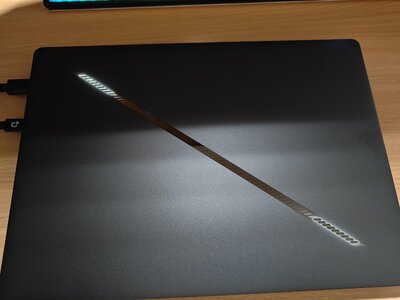Question for
@Madmick or anybody who might be able to shed some light on the subject for me.
Should I even bother using the overclock options given to me in the Armory Crate software utility that came installed in my Asus ROG?
By the looks of the interface I could move the sliders up by quite a bit.
Base clock offset is sitting at 50/200 MHz and memory clock offset is at 100/300 MHz.
Do the potential gains bring too much risk of excessive heat or other issues like shortening the lifespan of components?
Are the gains going to be noticeable?
I haven't touched them in the five months
I have had had the computer because I really don't know what clock offset means or how adjusting it affects the GPU.
My laptop has an NVIDIA 4080 and an Intel I9 - 13980HX, the computer has a max TGP of 175 W.


